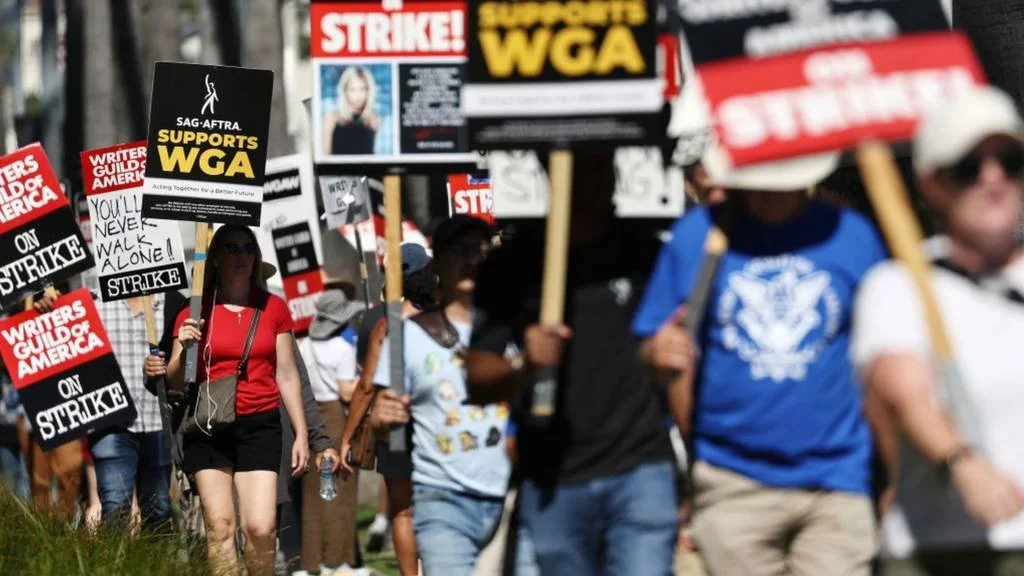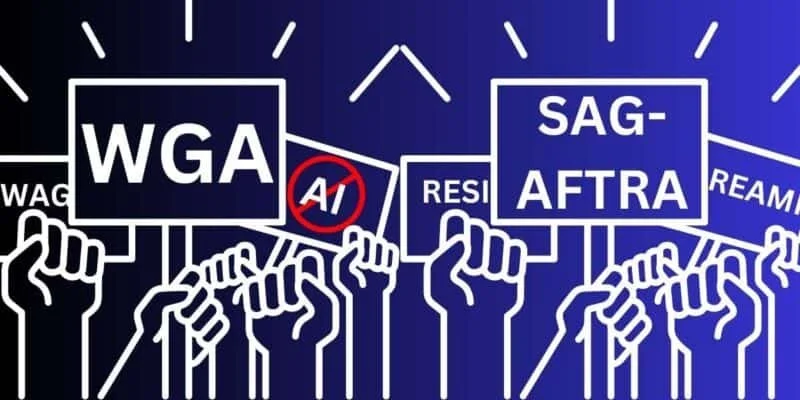The Joint WGA and SAG Strike: Implications for Book-to-Film/TV Adaptations
The entertainment industry braces for significant disruptions as the Writers Guild of America (WGA) and the Screen Actors Guild (SAG) join a historic strike. The strike, driven by demands for fair compensation and improved working conditions, will have far-reaching consequences for various sectors, including book-to-film and book-to-TV adaptations. The joint WGA and SAG strike will impact the transformation of literary works to the screen.
Delays in Adaptation Projects
One of the immediate consequences of the strike is the expected delays in ongoing and upcoming book-to-film/TV adaptations. As screenwriters and actors walk the picket lines, production schedules may be pushed back, affecting release dates and viewership expectations. As studios and production companies grapple with reduced staff and halted negotiations, fans of beloved books awaiting their on-screen adaptations may have to exercise patience.
Shift in Priority Projects
With strike-induced uncertainties, studios and streaming platforms may prioritize specific projects over others. High-profile adaptations with established fan bases and potential box office successes may receive greater attention and resources. In contrast, smaller-scale adaptations may face challenges in securing funding and support, leading to a possible imbalance in the diversity of literary works brought to the screen.
Impact on Story Development
The joint strike could also influence the direction and content of book-to-film/TV adaptations. Screenwriters' participation in the strike may pause script development, resulting in adaptations straying from the source material or delaying the creative process. Alternatively, studios may seek to bring in non-union writers or explore unlicensed adaptations, raising questions about the faithfulness of the final on-screen products to the original books.
Opportunities for Non-Union Talent
As negotiations between the unions and production companies stall, non-union talent may have opportunities to take on crucial roles in book-to-film/TV adaptations. While this may be an advantage for emerging actors and writers, it could also lead to concerns about the industry's sustainability and potential exploitation of non-union talent.
The Role of Streaming Platforms
Streaming platforms have significantly changed the landscape of book-to-film/TV adaptations in recent years. With an increasing demand for original content, these platforms may continue seeking book adaptations, even during the strike. However, they might face unique challenges navigating content licensing, union regulations, and audience expectations.
The joint WGA and SAG strike presents a challenging period for the entertainment industry, impacting book-to-film/TV adaptations on multiple fronts. Delays, prioritization shifts, and creative compromises are all likely outcomes as negotiations continue. For book lovers and fans of adaptations, staying informed about the strike's developments and how they might affect the projects you eagerly await is essential. As the industry seeks to find common ground and resolve the issues, the fate of book-to-film/TV adaptations remains in the balance.

